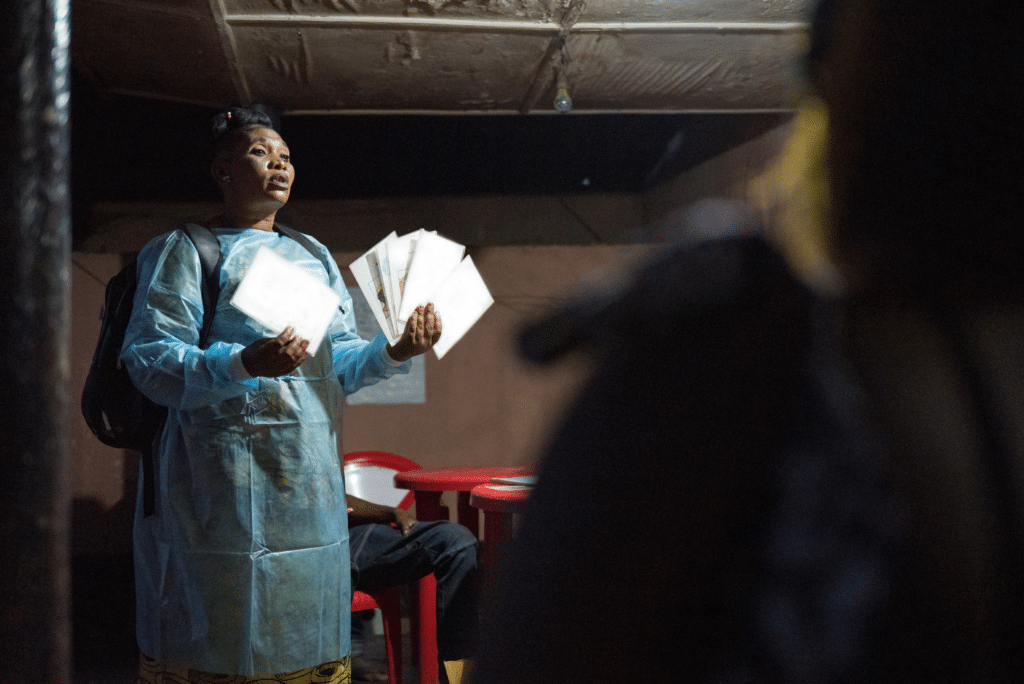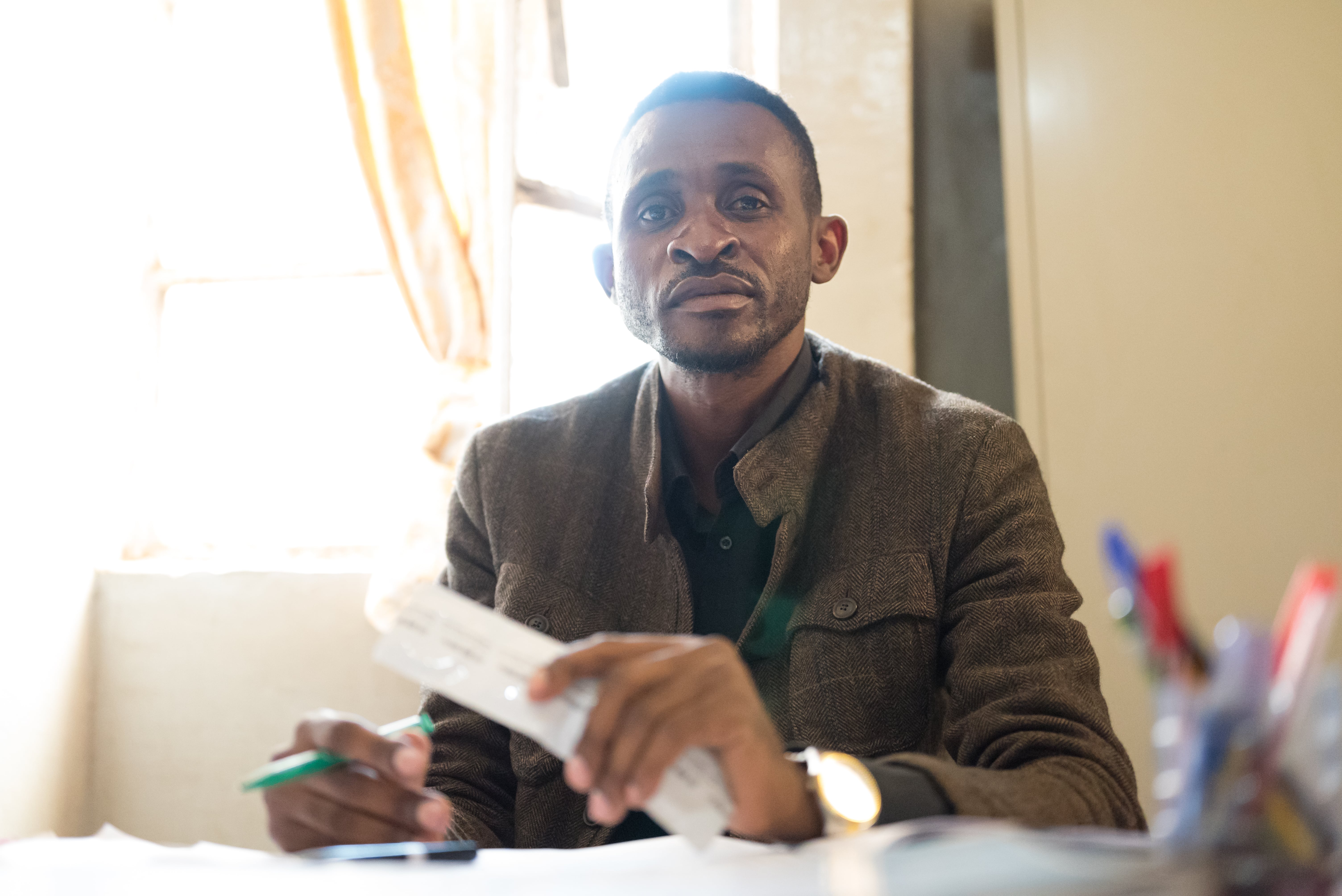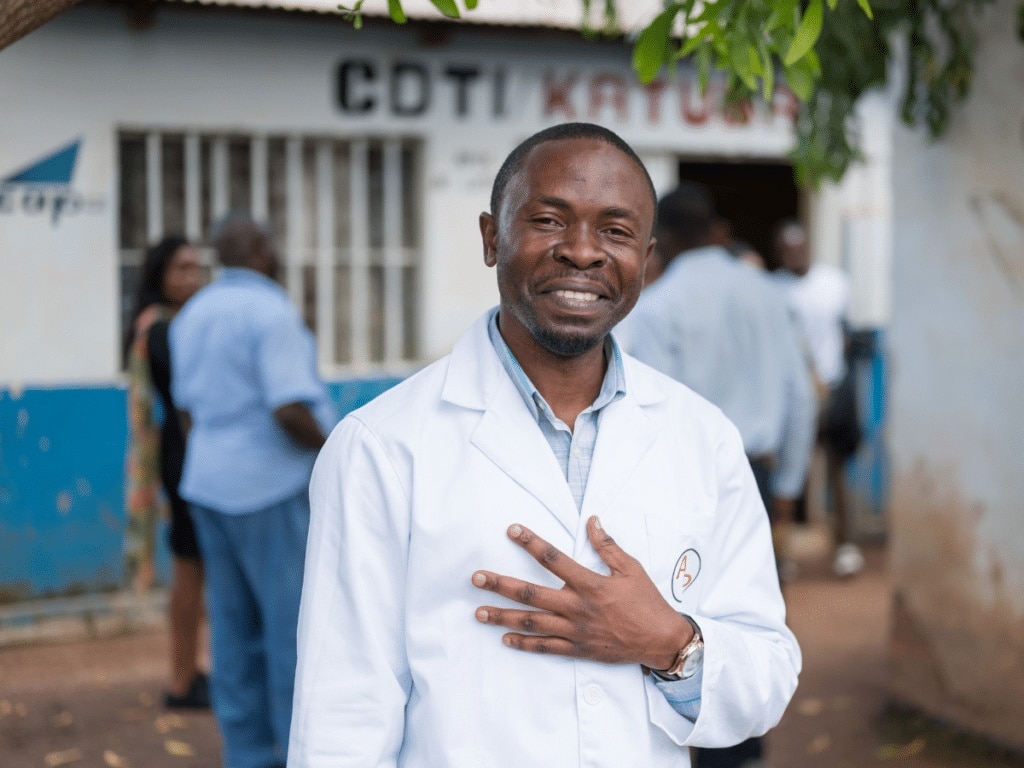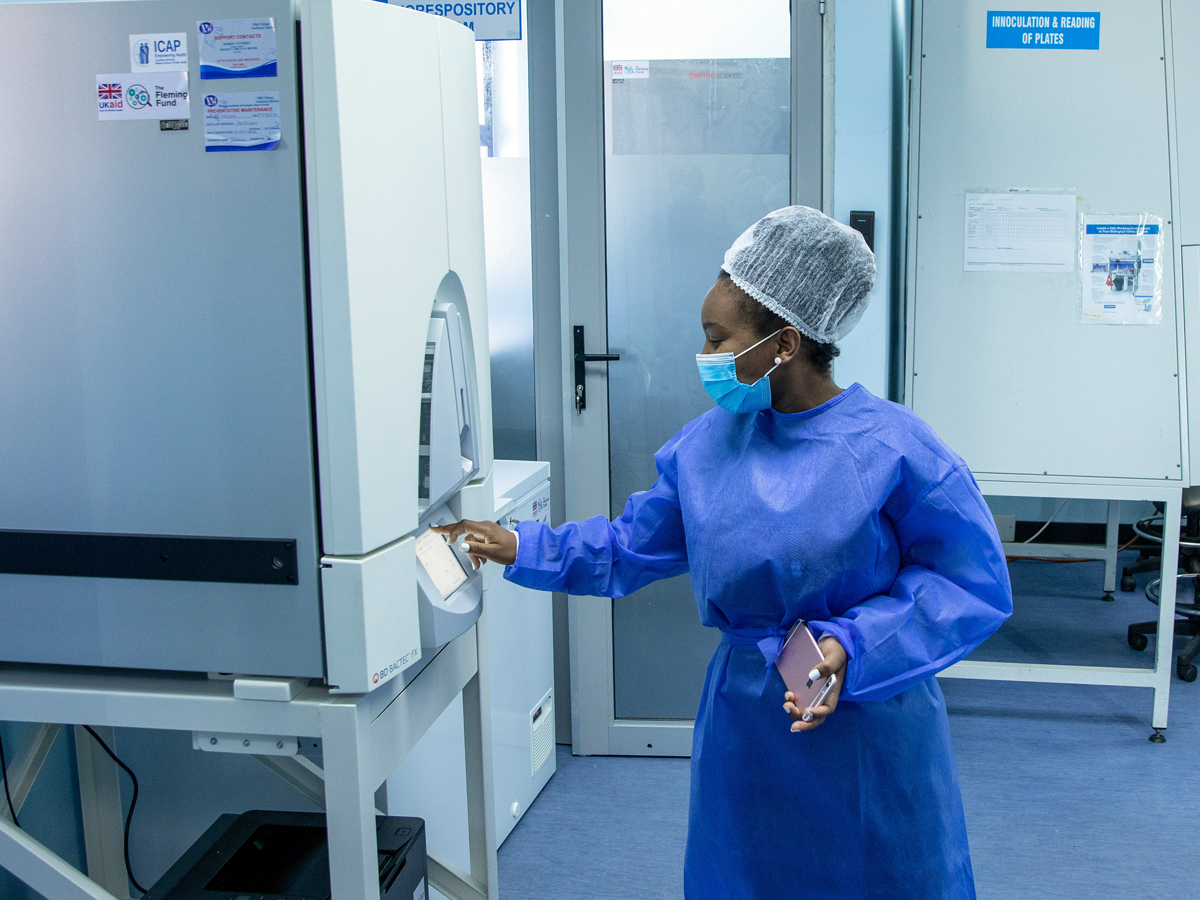“Within communities, key populations can often be isolated,” said Marcellin Makaya Lumbu, lead doctor at Centre de dépistage et de traitement des IST (CDTI) Katuba. “It’s important that we make them feel at home.”
Nestled off a quiet street in Lubumbashi, Democratic Republic of the Congo (DRC), CDTI Katuba is a facility that provides health services to key populations, including men who have sex with men (MSM), transgender people, and female sex workers (FSW). Key populations can face a number of barriers – such as stigma – to accessing lifesaving health services. CDTI aims to ensure that health is not only in reach, but that recipients of care feel safe in accessing its services.
Supported by the U.S. President’s Emergency Plan for AIDS Relief (PEPFAR) through the Centers for Disease Control and Prevention (CDC), ICAP in DRC trains health workers at CDTI on administering services including HIV testing, STI screening, pre-exposure prophylaxis (PrEP), family planning, viral load testing, and antiretroviral treatment (ART), and provides acceptance and discrimination training. Acceptance training, which is key to enabling health staff to provide services safely and discreetly to recipients of care, covers topics such as the impact of stigma on HIV risk, myths associated with key populations, and addressing discrimination in health care settings.
ICAP also trains community activists who create awareness around the services CDTI provides to help bring health services to those who cannot visit the facility in person.
Irene, for example, is a community activist at CDTI. As a person living with HIV, Irene understands the challenges people face when deciding to get tested for HIV or starting treatment. Irene visits communities to create awareness around CDTI’s services and also brings the services to communities – on any given day, you might find Irene delivering condoms to a “hotspot” where FSWs frequent or presenting a talk on the importance of PrEP. In fact, from October 2022 to September 2023, CDTI community activists have served 17 hotspots, reaching 2,160 key populations with health facility services.
“I love what I do,” said Irene. “I was trained so that I make sure I’m discreet when I visit communities. This is so there is no discrimination. We accept people the way they are. It’s very important to have someone like me who is HIV-positive on the team.”

Irene presents on safe sex practices at a “moonlight,” or nighttime, key population hotspot.
From October 2022 to Sept 2023, CDTI provided HIV testing for 1,563 FSW and 316 MSM. New HIV infections were detected for 22 people, all of whom initiated ART. Of those who received viral load testing, 87 percent of FSW, 91 percent of MSM, and 100 percent of transgender people were virally suppressed. Through CDTI, 192 key population members initiated PrEP.
CDTI will be implementing additional programs in the coming months so that key populations have even more access to health services, including intensifying “moonlight” HIV testing – HIV testing conducted at nighttime for greater discretion – for MSM and transgender people.
“I always come here for medicine, condoms, lubricant, and other services,” said Neville, a CDTI recipient of care. “I also bring my partners here. The products offered are free, which is very helpful. I’m happy and comfortable here.”
In Lubumbashi, Poste de distribution des ARV (PODI) is another ICAP-supported facility where key populations can access HIV health services discreetly. Recipients of care visit PODI, which is located in a building undisclosed to the public, to receive routine checkups, pick up ART, and engage in one-on-one consultation with community activists. All staff members at PODI are also HIV-positive, further ensuring that recipients of care feel safe and understood when accessing health services. In 2023, 153 people received ART at PODI, all of whom have a suppressed viral load.

Alan Useni, a PODI community activist, gathers condoms to give to an incoming recipient of care.
“It’s of the upmost importance that we foster supportive spaces for key populations to access health services in the DRC,” said Stéphania Koblavi, PharmD, PhD, country director of ICAP in DRC. “Doing so will help recipients of care feel they can both initiate care and treatment and also maintain it over the long-term, ultimately reaching better health outcomes.”
Photos by Artur Francisco for ICAP
About ICAP
A major global health organization that has been improving public health in countries around the world for two decades, ICAP works to transform the health of populations through innovation, science, and global collaboration. Based at Columbia Mailman School of Public Health, ICAP has projects in more than 40 countries, working side-by-side with ministries of health and local governmental, non-governmental, academic, and community partners to confront some of the world’s greatest health challenges. Through evidence-informed programs, meaningful research, tailored technical assistance, effective training and education programs, and rigorous surveillance to measure and evaluate the impact of public health interventions, ICAP aims to realize a global vision of healthy people, empowered communities, and thriving societies. Online at icap.columbia.edu








